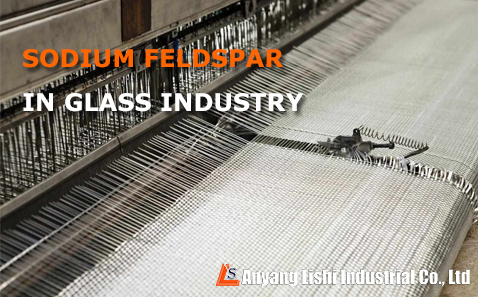
In the realm of advanced materials, sodium feldspar emerges as a critical component in the production of glass fibers. This versatile mineral, with its unique properties, plays a pivotal role in enhancing the quality and performance of glass fibers. In this article, we will explore the intricate connection between sodium feldspar and glass fiber production, shedding light on the key factors that contribute to its prominence in this innovative industry.
Sodium feldspar, also known as albite, is a feldspar mineral recognized for its elevated sodium and aluminum content. Its significance extends beyond traditional applications, finding a crucial role in advanced materials such as glass fibers. The mineral’s unique properties make it an ideal candidate for imparting specific characteristics to glass fibers, revolutionizing the materials landscape.
Glass fibers are renowned for their strength, durability, and versatility, making them a staple in industries ranging from construction to aerospace. Sodium feldspar contributes significantly to these qualities. When incorporated into the glass fiber manufacturing process, sodium feldspar acts as a fluxing agent, lowering the melting temperature of the glass.
This reduction in melting temperature enhances the homogeneity of the glass melt, allowing for better control over fiber formation and minimizing defects. The result is a glass fiber with improved tensile strength and resistance to environmental factors, making it a superior reinforcement material in composite applications.

Sodium feldspar’s influence extends to the fiber-forming stage of production. Its presence aids in the drawing and attenuation processes, where the molten glass is transformed into fine, continuous fibers. The mineral’s role in controlling viscosity and promoting uniform fiber diameter contributes to the overall quality and performance of the end product.
The integration of sodium feldspar in glass fiber composites opens avenues for innovation in various industries. From lightweight and high-strength construction materials to advanced components in automotive and aerospace applications, the use of sodium feldspar in glass fiber composites enhances the overall performance and sustainability of these materials.
Beyond its technical contributions, sodium feldspar aligns with the global shift towards sustainable practices. Glass fiber production using sodium feldspar allows for energy-efficient processing due to lower melting temperatures. This not only reduces the environmental impact but also positions sodium feldspar as a key player in the development of eco-friendly and sustainable materials.
As industries continue to seek advanced materials with enhanced performance and sustainability, the role of sodium feldspar in glass fiber production becomes increasingly prominent. Its unique chemical properties and contributions to the melting and forming processes empower manufacturers to create high-quality, environmentally-conscious glass fiber composites. The synergy between sodium feldspar and glass fiber production represents a harmonious blend of geological ingenuity and technological advancement, driving the evolution of materials for a brighter and more sustainable future.

Whether you have questions or you would just like to say hello,Contact us!
Call Anytime:
+86 15837207537Send E-mail:
info@lsakminerals.comAddress:
Anyang City , Henan Province, China.